
Pat Carr is a resident of Dipton, County Durham, he worked, alongside many members of his family at Consett Steelworks, before it was closed down. In 1980 the Nationalised British Steel Corporation sought to prioritise coastal steelworks that could more easily import iron ore and export finished products, which was the end of the inland steelworks.
Below is the transcription of an interview of Pat Carr, with his son Liam by Clara Paillard (Tipping Point) and Anne Harris (Coal Action Network).
Coal Action Network was interested to find out what was successful about the redundancy package for workers being let go as Consett steelworks closed and what lessons can be learnt for a truly Just Transition of current high carbon industries, such as Scunthorpe steelworks, making redundancies or closing due to the climate crisis. We are worried that the workers at Scunthorpe will suffer the same poor deal of workers at Port Talbot, as both blast furnace steelworks are converting to produce steel using electric arc furnaces rather than blast furnaces using coal.
(Transcription of the interview, edited lightly for clarity. To listen to the recording click here.)
Question: Can you give us an introduction?
“I worked in the steelworks for 11 years. In the steelworks, as a steelworks operative you start as a labourer and then you filled in for all the different jobs on a day by day basis, until you picked a line that you wanted to go into. So you could be on the furnaces or... or boiler cleaning, so there are lots of different lines of labouring type work. And I was on the furnace line… I was the senior labourer there. Therefore you got the first job choice for each day. The system was that you had a lieu day, each worker was on a 40 hour week, therefore it was a constant shift system... Each job had to be filled on that rota. Each day you checked who was in and who was on sick, checked all the cards, saw where the vacancies were, the different roles in the steelworks and then you filled them in down the line, so each of the labourers did that. So, that’s what I did for 11 years, but mostly on the furnaces, the O2 furnaces.”
“... Yeah, you change shifts every two days. So you might be on night shift Monday, Tuesday, and then you might go back to 2pm -10pm Wednesday, Thursday, then you’d be 6 o’clock in the morning until 2 in the afternoon Friday, Saturday, Sunday, Then you get your two days off. So you change shifts constantly."
Question: You must have been a young man when you started, how old were you?
"20 years old."
Question: Am I right to say that at the time it was still the British Steel Corporation? It was still a nationalised company?
"Yeah, the British Steel Corporation, yeah. That was the organisation yes."
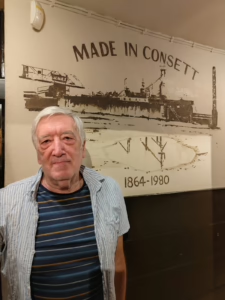
Question: When you started at 20 did you think that was going to be a job you’d be in for a long time? Or was 11 years quite good innings?
“I just needed a job, so I just took it at that age. I’d previously been a student and it hadn’t worked out. Thought I might want to go into teaching but I decided I didn’t want to, so that didn’t work out. So, I ended up in the steel works at that age… I was made was made redundant once during that time, the steelworks has always been a strange industry of peaks and troughs. Lots of people who were started there were taken back on and so was I... There was one time, after a couple years where I was made redundant, but it was only for a 6 week period, then trade picked up again and you’re taken back on and end up in the same place.”
“In our street there was me and my brother. And my father had been a miner but then he ended up in the steelworks as the mines were closing down, but he started after me. My brother he worked elsewhere and then he ended up there, laying train tracks in the steelworks. My cousins down the street, they lived a few doors away from us. and their father worked in the steel works, their mother worked in the steel works. My closest cousin, who was about the same age as me, he started at the same time as me and we went through all the steelworks together for 11 years together. His brothers worked in the steelworks and his sister worked in the steelworks cos she was a nurse and she worked in the medical centre in the steelworks. So that was a whole family virtually, two adults and six siblings. Lots of families. Women worked all over the steelworks.”
Question: Were workers members of a trade union, and if so, which one?
"It was called BISAKTA when it started, British Iron, Steel and Kindred Trades Association. Then it became ISTC. [Iron steel trades confederation.] They just changed the name slightly. Iron Steel Trades Confederation.”
Liam “Did it turn to GMB in the end?”
“No, I’ve no idea what it is now. I don’t know how many steelworkers there are left, probably very few.”

Question: there are still some, a big union representing steelworkers is called Community it is probably one of the decedents of the unions you mentioned.
“It was the ISTC in 1980.”
Questioner: When steelworks were up for complete closure what happened? What was the year that it happened, why did it happen? How did people in the community or workers respond to that decision?
“There had been a miners strike the year before, we were then on strike earlier that year for the early part of that year. We were on strike for 10 weeks or something like that. In the winter of that year and there had been talk of closures all over the place and we were still trying to campaign to keep the Consett steelworks open. But I think it is a wearing down process… our family were all still resolute that they should be kept open. But there were others that were starting to waive and then they started to offer all kinds of incentives to take redundancy payments, enhanced payments, training schemes and all kinds of things, which may have swayed some of them. As far as I recall that took maybe eight months of negotiation, including marches in London and marches in the locale. Eventually the closure was complete in about September that year.”
Question: during that time when they were trying to close the steelworks, were people arguing that there should be a Just Transition and training, or were people just saying that it shouldn’t close at all?
“There were a lot of people campaigning that it shouldn’t close at all, that it was so crucial to the local economy. Although, there was maybe 3,500 people working in the steelworks itself there was probably another 3,500 people that were dependent on that with all the transport links and ancillary works that went on and all the contractors that were brought in to do other tasks. So there was probably almost twice as many were involved but didn’t have a say, because they weren’t directly involved in the steelworks.”
“Just prior to that, the year before they did close Hownsgill steel, they had a big plate mill. It’s a massive complex a steelworks, so you have the iron making and then that moves onto the steelmaking, and that rolls into ingots that can be made into other things. And then some of the steel was sent up to Hownsgill that was just another part of the steelworks, where it was rolled into plate...maybe 40 foot long plates, maybe an inch thick and 6 feet wide, or something like that. So all these plates were rolled there, and the year before there was an argument put that if Hownsgill wasn’t part of the same scheme, if they closed Hownsgill, then the rest of the steelworks could be viable… It was supposed to make us more viable, but as it proved it didn’t matter that much. All that meant was that all those people at Hownsgill didn’t get the same terms and conditions that we came out with, because we had a national negotiation closing the whole steelworks and they never got that. So they went on much inferior terms to the rest of the site than the rest of the steelworks got for want of a year’s grace.”

“The redundancy payments if I can recall were quite generous. Virtually everyone in the steelworks, even if you’d been there a year or two you got 6 months pay and I’m not sure you didn’t get another six months pay a year later. So I think that was part of it. It was quite good for that time and absolutely incredible for this time to get a year’s money. So that was a bit of a sweetener. So that was redundancy payments, or severance pay I think it was called at the time. Cos redundancy payment was a nation scheme and the severance pay was enacted through the union and the steel corporation… then you got your ordinary redundancy was calculated on top of that, you got maybe a week and a half for every year that you worked in the steelworks. So that was an extra payment on top, and if you had another job to go to that sounds OK, it was a pretty good sweetener. An extra year’s money, plus another job on a similar basis, but unfortunately, the vast majority of people didn’t have that other job to go to.”
“For the year afterwards it was a bit of a boom town because of course all this money was swilling around, everybody had more money that they’d ever had, in cold hard cash, but without the prospect of it going on. It meant people were getting new cars, I think a lot of the local garages did very well out of it for instance for a couple years. You could put a deposit down on your house, or start buying your council house that kinda thing. It was a bit of sweetener for some. But that’s fine if you’re 60, you’re old, and you get that, and your pension isn’t too far away. Then it seems to work OK, but if you’re 20, 25 or 30, then you’ve got the whole of your working life ahead of you... If you wanted that role to be out in the steelworks, then that was never going to be the option again.”
“We got severance money, we got our redundancy money and, if you went on a training scheme, any recognised training scheme, you got your normal wages that you got in the steelworks for the time you were in the training scheme, for up to one year. That was another year’s bonus where you could go into virtually any eduction scheme. So that was another boom area… they were putting courses on for everybody to do anything. No matter if you had any prospects in it or you were even interested in it, you were a fool not to go onto it cos it meant that you could get a year’s money which you weren’t having to sign on the dole.”
“The local further education was at Consett Technical College, they started running courses all over the place so that they used Working Men’s social clubs, in any old schools, any old buildings that they could put 10-15 steelworks and the tutor they got the money for that. And the steelworkers got the money for it as well, so they were paid their normal wage, so everybody was into education for one year.”
“I’m guessing the money came through the British Steel Corporation because I haven’t heard of it being done anywhere else, so I’m guessing it came through British Steel Corporation and through the government as well. I think there must have been a government incentive to try as at the time they were trying to shut down all sorts of things. It was the time when Thatcher was just about getting into her stride… It was the same feller who went on to the mining [Liam interrupts with “MacGregor”] MacGregor yeah, I think he was working on closing the steelworks at the same time as he was being groomed to sort out the national coal board at the same time.”
“I went down to, it is Sunderland University now. I was doing data processing, it’s an IT course, computer science, it was a degree course… But my father went, he wasn’t very, he wasn’t a great scholar in his youth and he was barely literate, but he went on a course because it was a free year."
"So you go on a reading and writing course, any course, but I actually did a degree in data processing and ended up in computers, computing...and that’s what I worked in most of the time since then, either computer programming or systems analysis, that kind of work.”
“My brother did much the same, but he went straight into, I’m not sure he did the training but he got a job at the national [….] but on the computer side. My cousin who lived down the street, he came with me on the same course, so we ended up doing the same course. We didn’t do the first year, but we ended up on the same course again… There was some who saw a career opportunity and others who wanted the money regardless. If you were 55, which I think that me father would have been by then probably, he needed the year’s money so he went straight into that, and he did a course just because cos it was a simple way to keep the wolf from the door.”
“There might have been a cut off time of a year” [working at the steelworks to get the money to retrain]
“Literacy courses were just as vital as any higher level courses, they were just as vital to those people… It was an absolute boom time. My father did his course in the working Men’s Club, there wasn’t enough facilities to cater for everyone who wanted to do the courses.”
Question - what was the role of the unions?
“I’m not certain who was doing that negotiation, but I think that that was the sweetener because I’m not sure there was a massive vote and they voted to close that plant in the end. Because it must have been close to it, a 50 : 50 split as to close the place or keep fighting on and possibly loose all of those enhanced conditions. Or whether just to hold up and take the enhanced conditions. I was never quite sure if there was a vote on that and that’s the way it went eventually. There wasn’t a prescribed vote on that. There was never a sheet of paper, I think there would just be a show of hands in a mass meeting.”
“It’s the best one I have heard of, I’m not sure what the pit closures got. It must have been around the same time as pit closures, or in the next four years, but I don’t think they got that same enhancement.”
Question: What could be learnt for current transitions?
“Certainly the education and training certainly helped me massively. I would never have thought of going into it, I always had at the back of my mind that I could have been doing something other than working at the steelworks, but I wouldn’t have jumped ship because the jobs was so good and the money was so good in the steelworks, so you would never leave it on that basis. Having been pushed into it, it wasn’t the most dreadful thing that happened to me. It worked out not too bad."
"There were hickups, it wasn’t all plain sailing so the first job didn’t work out that I got after qualifying... The eduction did work out for me long term, that’s what I needed at that time. We’d just had our 4th child so I needed a job at the end of the education... it had to have a concrete task at the end of it. And actually it… was quite good because the course that I went on, as well doing your 3 years, it was a sandwich course. So I also had one year out in industry, which meant I earned the money for that year. And therefore I got an extra year earning at the same time as the education was going on. So that worked out quite well as well.”
“I did a three year course with a year in industry where you were out and working for the year, so you got the wages as well so you weren’t reliant on… at the time I think I could claim unemployment whilst at college cos the hours were, the attendance hours weren’t massive. So you could still register as unemployed, I’m not sure it was legal or not, but it was the route I took. So I could claim unemployment benefit whilst still attending college.”

What was the situation 5 years on?
“It was definitely boom and bust, after that one of the local politicians said it used to be a BSc town, but now it’s a MSC town, meaning Manpowered Services commission, cos there was a time when if you registered unemployed they sent you on all kinds of retraining courses, which were unusually insignificant but I think that after that first 4- 5 years it definitely took a slump, the local economy. It’s virtually a dormitory town now, everyone travels to work.”
“There are industrial estates.. there were things brought in, probably on grants. Electrac which was supposedly a new form of electricity supply to your home where you could plug in anywhere in any room which sounds quite attractive now...There were some bits and pieces that came in, a little portion of the aerospace industry that came into an industrial estate in Consett, but never with the scale of the steelworks. Maybe a hundred workers would maybe be the size. Some food industries came.”
“They were probably dragged in with government incentives as it was now in a dire state economically and so there were extra incentives to bring those works into the area.”
Question - Was there new industry created locally?
“One or two of my friends went down to Teeside cos there was still a steelworks in Teeside. And they worked down there on the new steelworks down there. But not a lot, I’d guess way less than 1% actually went to Teeside.”
“There was nowhere, if the steel industry is suffering in one area it’s not going to be suffering everywhere. If it’s not going well in Consett it won’t be going well in Teeside either. All they were doing was filling in jobs, vacancies where if they knew that role they could move into that.”
“Actually I did know one lad who went to Mexico to build steelworks. I think British Steel Corporation were being employed to build new steelworks in different areas of the world in the far east and Mexico and they were building that while undercutting themselves. So there were some people who did that, went away. Then there were some people who were working on pulling the steelworks down cos that was a massive project, it was an absolutely gigantic project Project Genesis it’s still going on now, I’m not sure it’s ever going to finish. But the actual pulling down that took at least 5 years and then pulling up all the rail lines and that kind of things, you loose your railways as well. Because that was just there to serve steelworks… it was only goods at that time. The last passenger was prince Charles just after the closure. And they ran a passenger train. King Charles as he is now, I think it was the only passenger train that ran for several years…”
Anne says it makes it hard to go to work if you lose the rail station.
“Luckily, my cousin went the same place and I knew people around the area who were all going down to Sunderland so we used to share journeys down there.”
“It’s hard to extrapolate now as you’ve seen virtually every centre in Great Britain fall prey to all kinds of things… it probably had a boost for about 2 years and then it slowly drifted down and became less and less viable to shop in Consett and the centre its self. And at the same time there was lots of out of centre shopping being brought in... The middle of Consett isn’t too badly served with large shops, you’re still within walking distance of the centre of Consett to a lot of the super markets so but the main streets, the main streets everywhere are struggling. I think the pub trade took a hit, it took a massive boost and then of course, it took a massive hit after 4 or 5 years so instead of being 20 pubs in Consett there is probably 10 now.”
Question - Would you have stayed in the industry if you could?
“Absolutely not.. I enjoyed the work and I enjoyed working at the steelworks and I enjoyed working on the furnaces. There was always a slight niggle at the back of your head that you should be doing something else, but it was good work and good money, so I would never have moved. The first job I got after that I was having a cuppa and the boss came in and said “this is different from what you used to do”. It was my first job in Tyne and Wear and I said, “yeah it is different” and he said “this is far better isn’t it I bet you’re glad you’re doing this”, and I said, “actually I wish I was night shift going to the steelworks,” and that was about four years after I’d finished.”
Question - What messages do you have for current workers in high emissions industries?
“I would hope the allied industries would pick up on that, so you’d hope that the green side of that same industry would pick up some of the slack and maybe that’s where the retraining should be focussed and move onto that side rather than persevere with the one we’ve got.”
Clara says report published by climate orgs working with oil workers and 80% of oil and gas workers would be open to retraining. Anticipating collapse.
“Although there must have been pre-planning that we weren’t involved with, you never saw that… It was as good a deal as I’ve seen anywhere the scheme that we got. I don’t think it is has bettered since and I doubt it has been approached since.”
Clara says we will bring this back the message of what you benefited from at the time to those working on Just Transition in oil and gas industries.
Anne - we're working against 2 coal mines and for decarbonisation of the two major steelworks using coal. The company and the government aren't really giving the workers any kind of transition period. They are sort of blaming activists for steeling jobs, when the coal mine was supposed to close [Ffos-y-fran].
“It was always a bit of an incentive,... when Joanne was on planning at the Council and they were looking for opencast permissions and they used to send workers from Banks to the house and they to say, “what we could do is have more workers here and 10 workers or something.” and I used to think, “yeah, you can have 10 workers, but bleeding heck, it was an absolute drop in the ocean compared with what had been in pit”... It was just a sock for those workers and I think they were being used by the management onto decision makers and local authorities. It was hard to put an argument against them because they had such a vested interest in it. They saw it as you taking their job away. They were different times.”
===Ends===

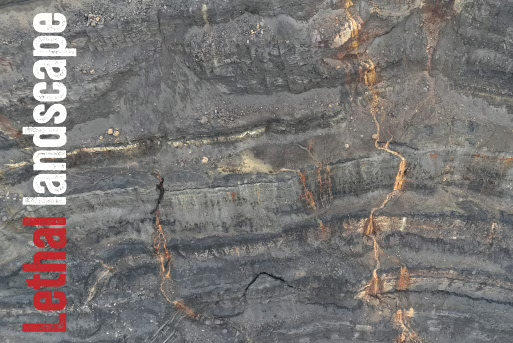
16 years of opencast coal mining in Ffos-y-fran has generated colossal overburden mounds, also known as slag heaps or coal tips. There are three coal tips, with the third being the largest, and cumulatively accounting for 37 million cubic metres of colliery spoil, rocks, and soil…
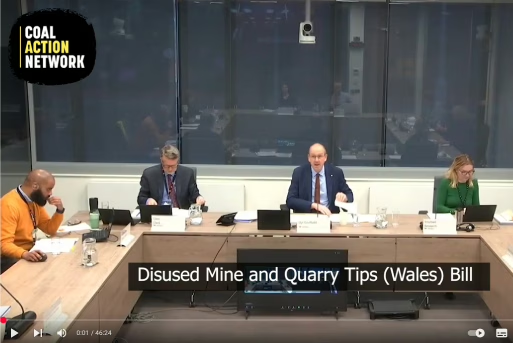
We were invited for the second time to give oral evidence to the Climate Change, Environment, and Infrastructure Committee of the Welsh Parliament (Senedd) on 05th February 2025. We shared the panel with Haf, Director of FOE Cymru, to provide our opinion on the weaknesses, strengths…
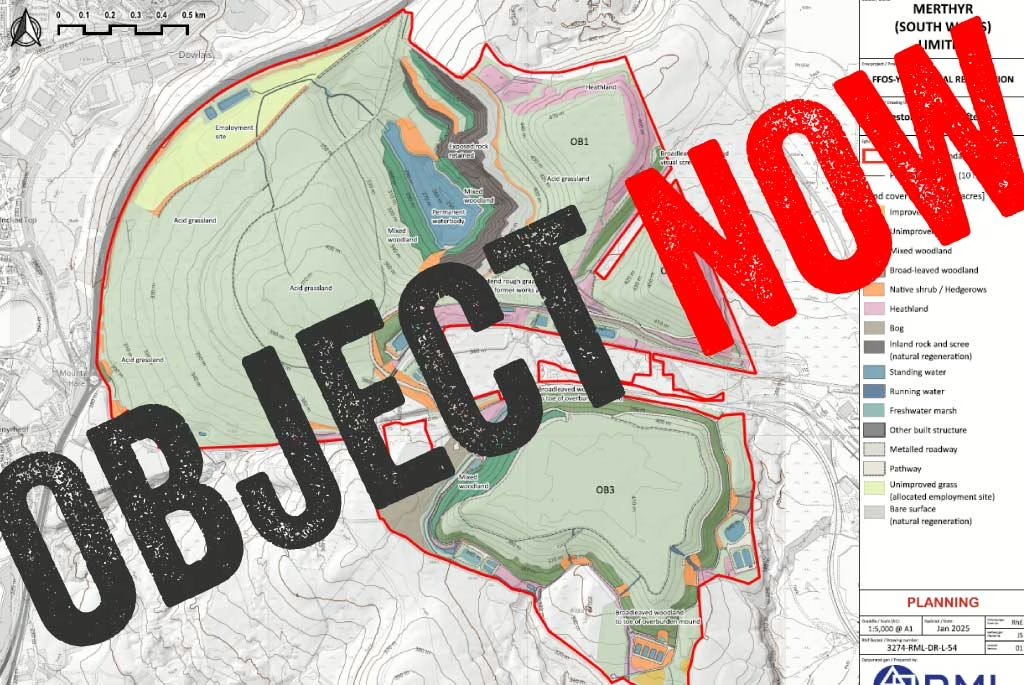
Merthyr (South Wales) Ltd mined for over a year illegally after planning permission for the Ffos-y-fran opencast coal mine ended in September 2022. During that year, it made record-breaking profits due to sanctions on Russia and other factors driving up the price of coal. But rather than using some of the profits from that ill-gotten coal…

MSW claims “It was established that there are insufficient funds available to achieve the 2015 restoration strategy and therefore an alternative scheme is required.” (EIA Scoping Report, July 2024)… To our knowledge, there has been no evidence submitted by MSW that it cannot fund the full restoration it is contracted to undertake…
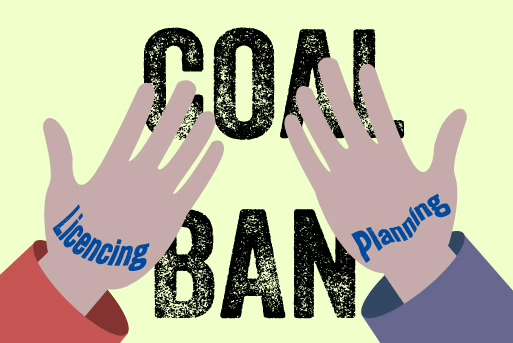
The UK Government launched a consultation on a limited review of the National Planning Policy Framework (NPPF) for 8 weeks from 30 July to 24 September 2024. The NPPF is an influential document that shapes planning decisions and priorities across England. It is periodically updated by the Government, following a public consultation…
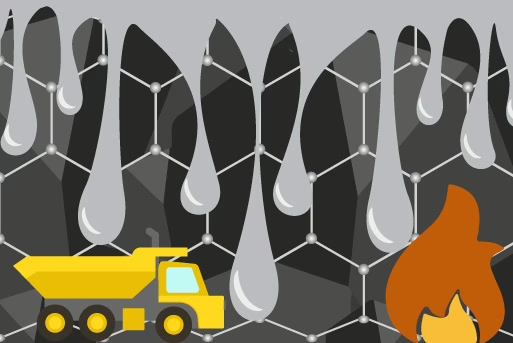
Bryn Bach Coal Ltd attempts to present the anthracite coal it wishes to extract from an expansion of Glan Lash as a unique and scarce commodity that is needed for water filtration, bricks, and graphite, and would therefore be too valuable to burn. Yet, visiting Energybuild Ltd’s…

Over the past year, we’ve secured some massive victories. By taking part in our digital actions, supporters sent over 26,000 messages to the UK Government, MPs, Welsh Senedd members, Councillors, and companies to help consign coal to the history books in the UK…
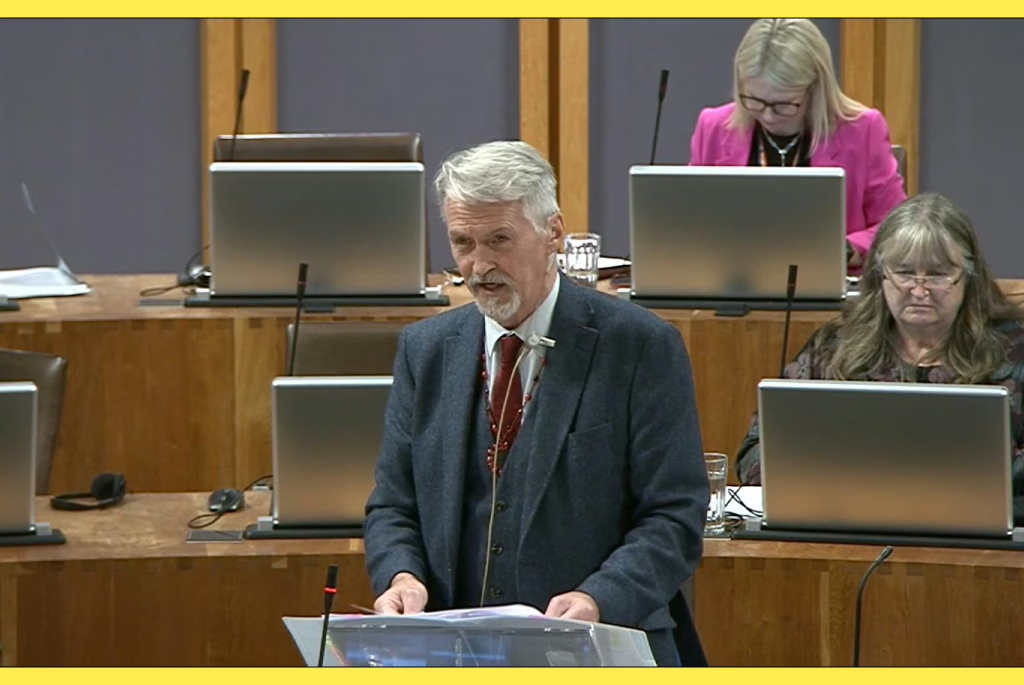
The Disused Mine and Quarry Tips (Wales) Bill (‘the Bill’) was prompted by a series of coal tip landslides that occurred in Wales following storms’ Ciara and Dennis in 2020, including a major landslide of a disused coal tip in Tylorstown…
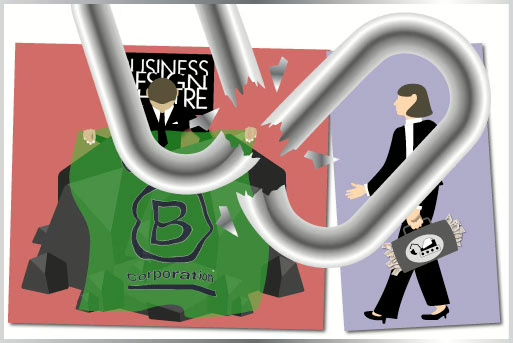
As B Labs doesn’t seem bothered was the public says, we asked supporters to contact other B Corps – who are effectively B Labs customers. Almost 20,000 emails were sent to over 60 B Corp status companies, asking them to take a stand with us…